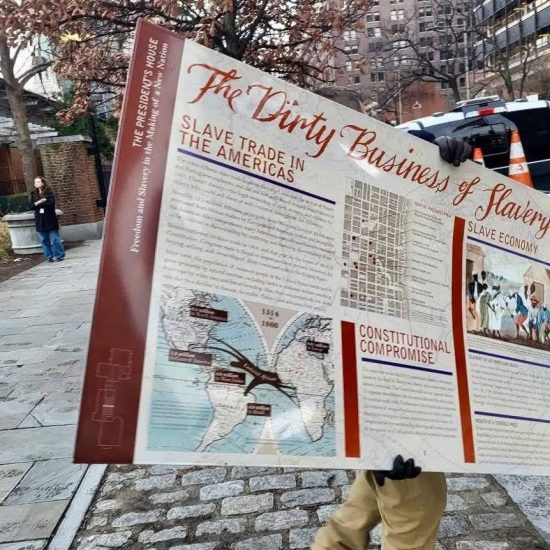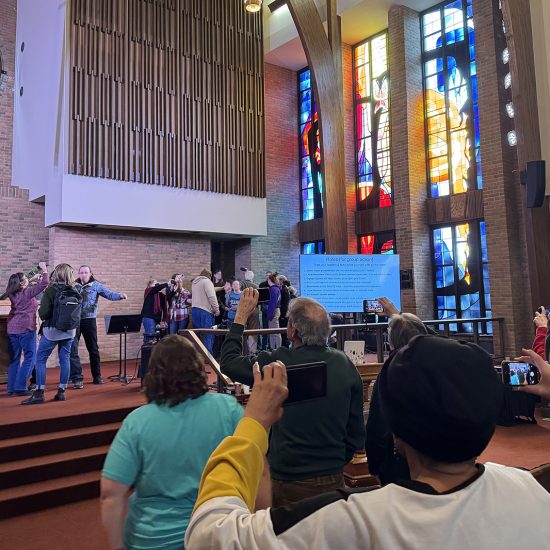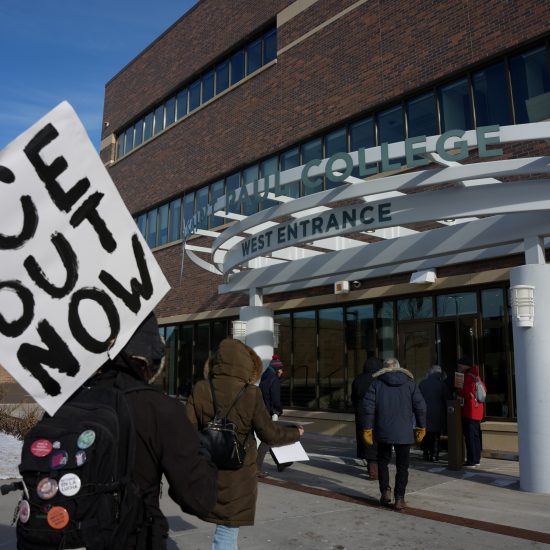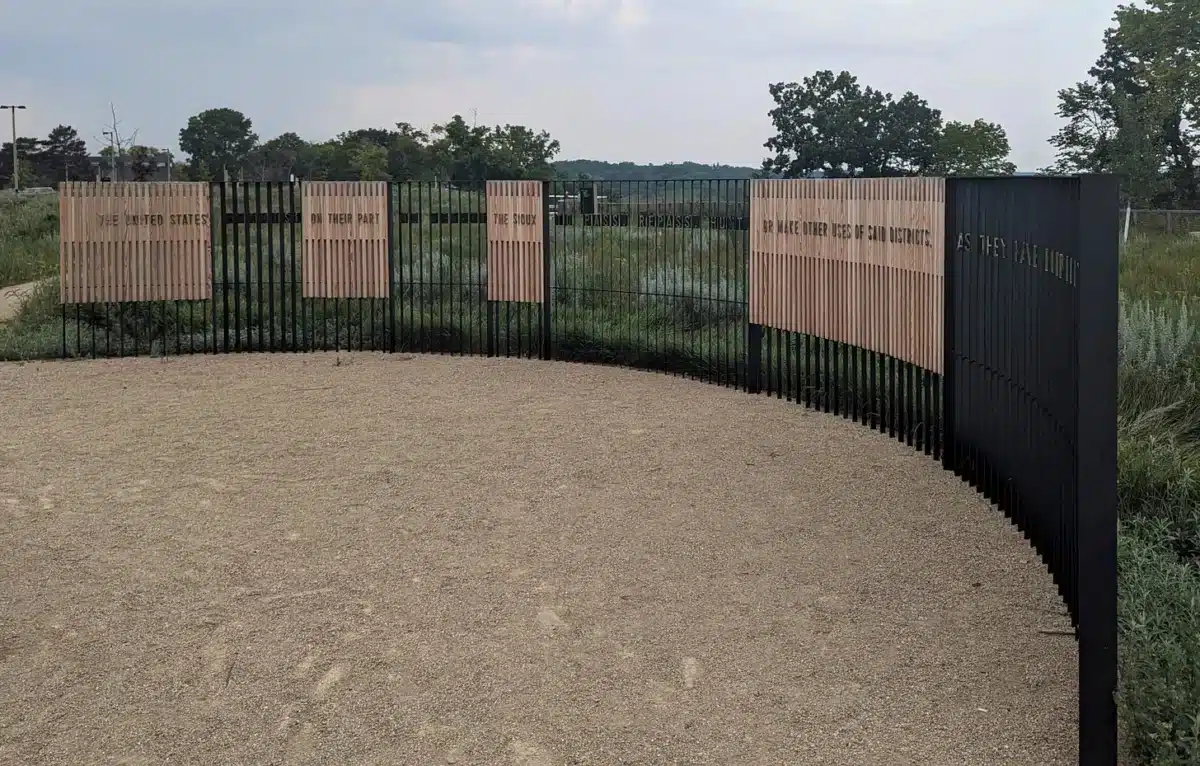
We generally don’t see root systems. Despite being out of sight, they are critical to the life of an organism. They provide fuel for its growth. They keep it anchored in place.
In his new book, The Hidden Roots of White Supremacy: And the Path to a Shared American Future, Robert Jones — a noted scholar of religion and public life who founded the Public Religion Research Institute — argues that the roots of racism in our society, especially in its structural forms, has not been adequately identified. Truly understanding the sordid racial history of the United States requires reckoning with the Doctrine of Discovery. It’s what makes this sin so hard to eradicate.
This teaching originated from papal edicts in the 1400s and justified the dominance of Western colonizers over Indigenous peoples, including their enslavement, exploitation, and even execution in service of the enrichment of European monarchies and the spread of Christianity.
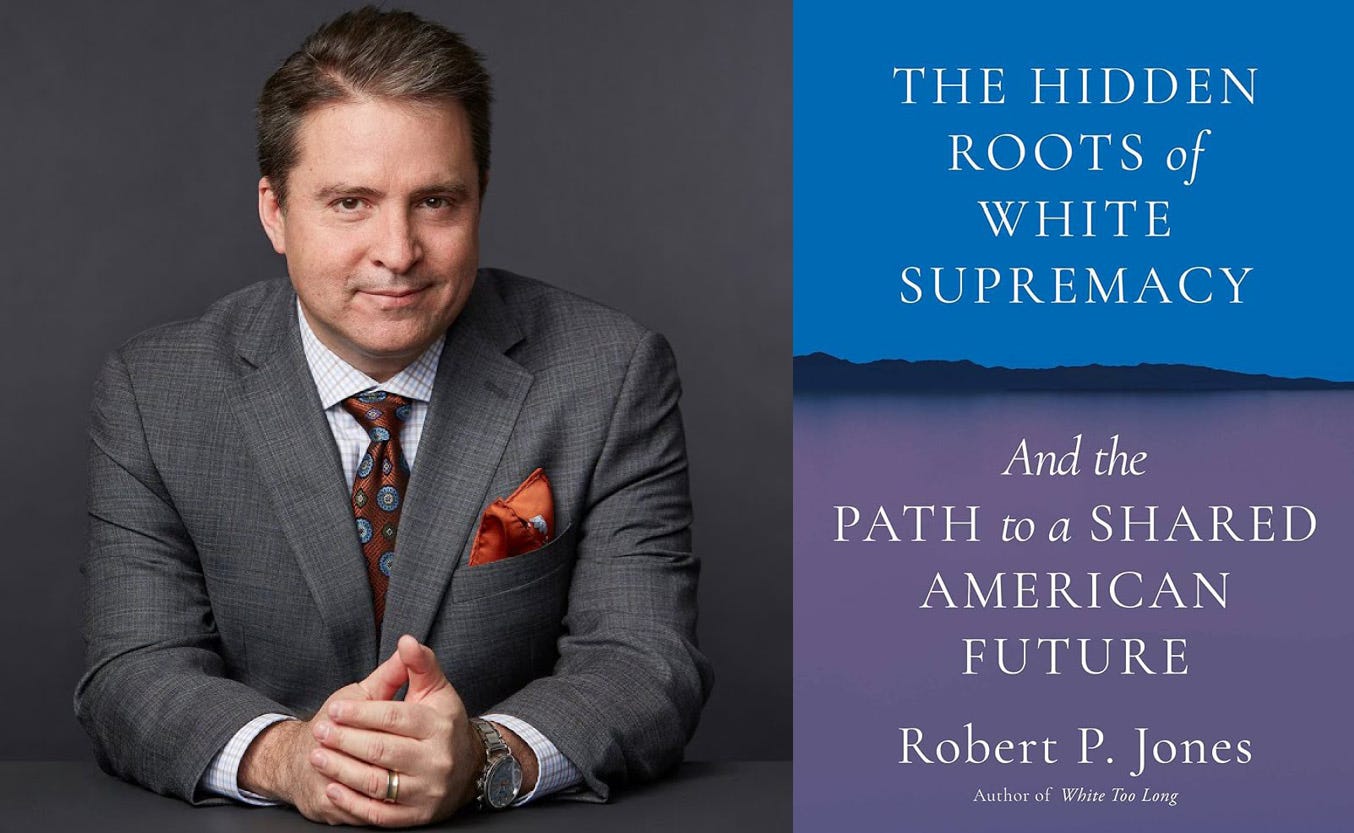
“The Doctrine of Discovery furnished the foundational lie that America was ‘discovered’ and enshrined the noble innocence of ‘pioneers’ in the story we White Christian Americans have told about ourselves,” Jones explains. “This sense of divine entitlement, of European Christian chosenness, has shaped the worldview of most White Americans and thereby influenced key events, policies, and laws throughout American history.”
Jones demonstrates this by highlighting the tragic history of three places: the Mississippi Delta; Duluth, Minnesota; and Tulsa, Oklahoma. In each place, he connects the arrival of European settlers committed to the Doctrine of Discovery with the displacement and devastation suffered by Indigenous peoples and then to later episodes of violence towards African Americans.
Consider what transpired in Mississippi. In 1541, Hernando de Soto “discovered” the area and claimed it for Spain (a moment that Jones points out is still celebrated with a prominent painting in the U.S. Capitol). Empowered by the Doctrine of Discovery, various Indigenous tribes were forcibly relocated, coerced into unequal assimilation, or violently attacked. The overarching goal was dispossession of their lands undertaken in the name of Christ.
Once colonizers gained control of the Delta’s rich soil, they implemented chattel slavery. A social order is established that is maintained by a system of racialized violence. Heinous events, like the murder of Emmett Till and the lack of accountability for his killers, unfold through the decades. Today, these local areas and the wider nation continue to reckon with what transpired.
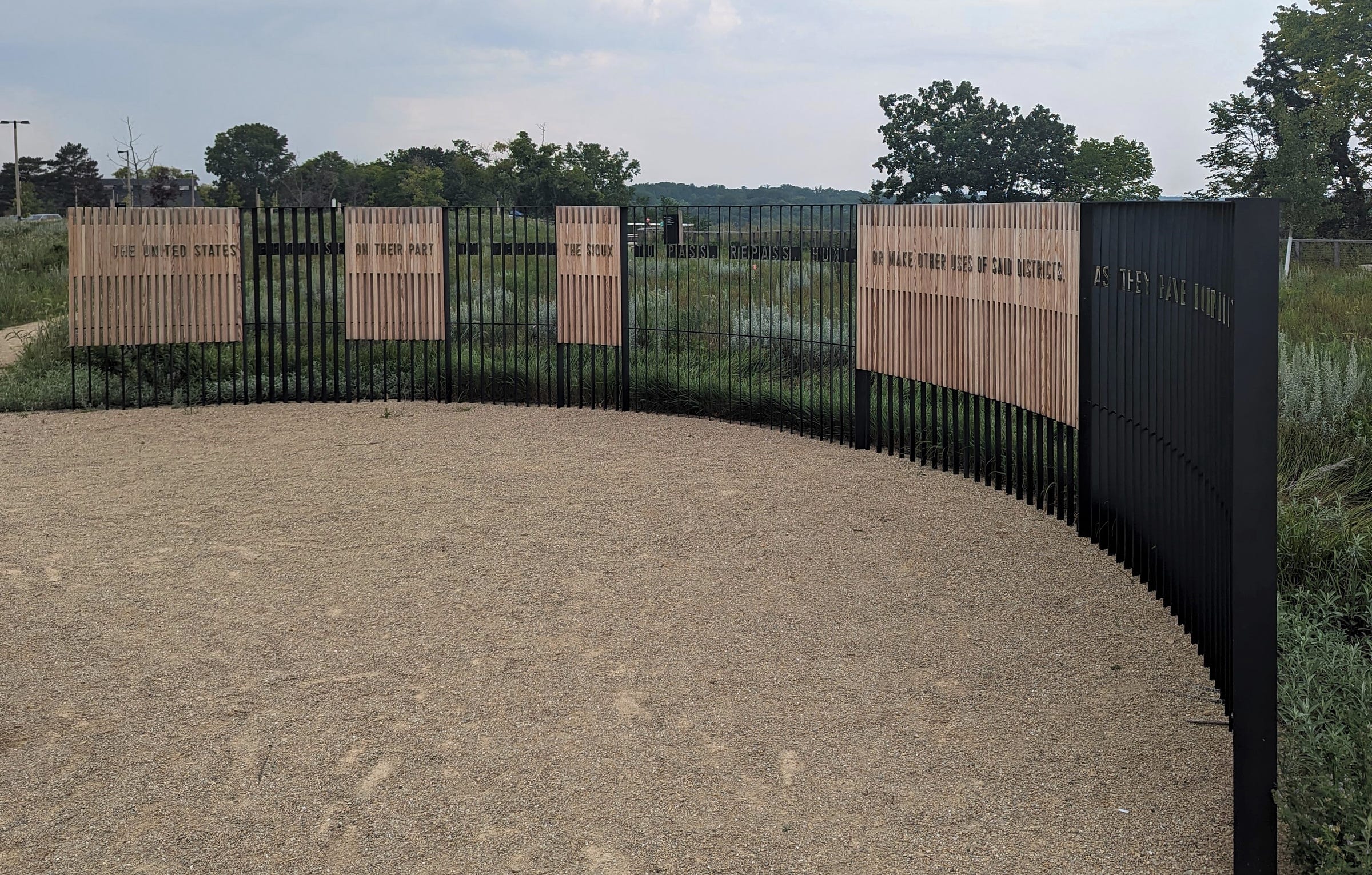
An installation at Fort Snelling in Saint Paul, Minnesota, that features the words of “The Treaty of 1805,” but with sections missing paneling to represent how it was illegally established and that the U.S. failed to uphold its promises. The word “promises” between “The United States” and “on their part” fades away as one steps back. (Brian Kaylor/Word&Way)
In the book, Jones dives deep into each story to make these connections across the centuries. Both the narrative and his logic are compelling and horrifying. The roots of our nation’s current racial struggles and long history of injustices are found in Christian teachings that were only formally repudiated by the Roman Catholic Church this year. (To state the obvious, many Protestants have been motivated by these ideas as well.)
The consequences are profound. They involve the retelling of our origin stories. Confronting this animating force leads to uncomfortable questions about where we came from and who we are. The mythical self-understandings we hold are shattered.
“Despite the emphasis on sin in Christian theology as it gets taught in White evangelical churches … I think that many White Christian churches have this deep sense of their own goodness,” Jones explained to Brian Kaylor in a recent episode of Dangerous Dogma. “It’s pretty hard to keep that story going when you look, again, not that far back. … It challenges — threatens — the stories we like to tell about ourselves, about our own innocence and our own goodness.”
“The other thing it really challenges is our right, frankly, to have all the things that we have: from land to wealth to power,” Jones added. “It’s a very concrete and economic and material threat that these stories [present]. To take them seriously, you can’t avoid the question of, okay, well what’s our responsibility then if this is the history that we’ve in fact been a part of and are the beneficiaries of.”
Despite the heaviness of the topic, the book is not without optimism. Jones also tells of national and communal remembrance that shows how revisiting the most painful parts of our collective stories can lead to new conversations that can be transformative for our shared future. The unknown variable is the degree to which we will create space for such candor and vulnerability.
The book is rightly garnering attention and accolades — and quickly became a New York Times bestseller. Jones tackles a weighty and fraught topic with great skill and expertise. Like in his past books, The End of White Christian America and White Too Long: The Legacy of White Supremacy in American Christianity, Jones writes courageously about the intersection of race and faith to foster better understanding across society.
Anyone seeking to grasp Christianity’s role in American history will need to wrestle with the stories Jones tells and the arguments he makes. We will make it easier for one lucky reader to do that by sending a copy of The Hidden Roots of White Supremacy autographed by Jones to a paid subscriber of A Public Witness. Upgrade today to ensure you’re among those eligible for that drawing.
As a public witness,
Beau Underwood

